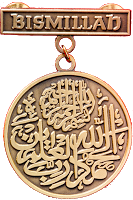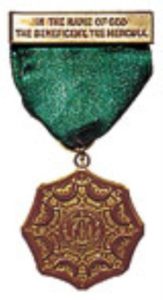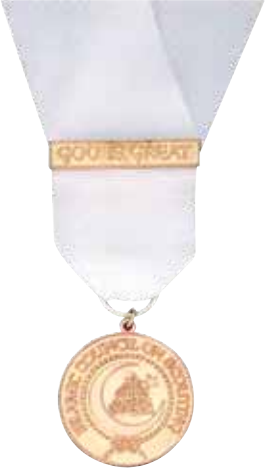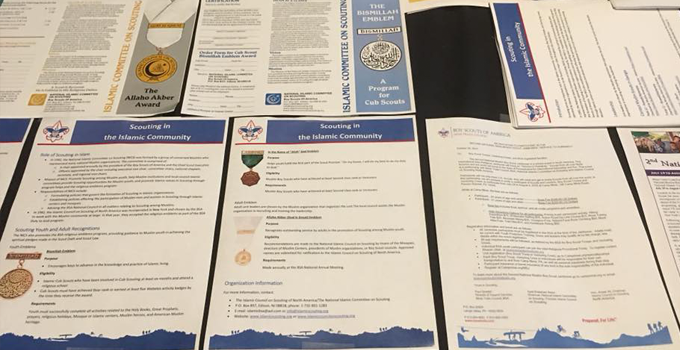Note: All the information on this page is provided by The Islamic Council on Scouting of North America/The National Islamic Committee on Scouting
Background
- Islam is one of the fastest growing religions in the world. Based on Pew Forum’s U.S. Religious Landscape Survey, 0.7 percent of the U.S. population practices Islam, representing more than 1.8 million people. Of those:
- 65 percent are immigrants representing mostly Arab and South Asian countries.
- 35 percent are native-born Muslims and 21 percent are converts to Islam.
- 93 percent are Sunni Muslims and 7 percent are Shia Muslims.
- 2010 Scouting membership in the Islamic community was:
- 1,140 Cub Scouts in 41 packs
- 787 Boy Scouts in 32 troops
- 89 Venturers in six crews
Religious Principles and Key Terms
- There are several Islamic terms with which Scout officials should be familiar:
- Islam: Voluntary acceptance of the will of Allah and obedience to His commands.
- Muslim: A person who freely and consciously accepts the Islamic way of life, and practices it.
- Qur’an: The sacred book of Islam. Many Muslim Scouts study with religious teachers at obligatory training sessions at the mosque until about age 12.
- Basic Beliefs: The five fundamental Islamic beliefs are Tawhid (Oneness of Allah), Risalah (Prophethood), Yaum al-Akhira wa Ma’ad (Day of Judgment and Life After Death), Ghaib (Angels and the Unseen), and Kutub (All the Books From Allah).
- Iman: One of the three dimensions of the Islamic religion which refers to the strength of conviction, or faith, of a Muslim.
- There are five pillars of Islam (or foundations of faith):
- A Muslim boy of Boy Scout-age must offer prayers five times a day (when in camp, time for this activity should be allowed).
- Before he can begin, the youth will need to wash himself in the prescribed way.
- With other men and boys, he will attend the mosque (or other suitable area when in camp) to say prayers.
- The Muslim Boy Scout will need to fast the whole month of Ramadan from dawn to sunset (no food or drink).
- Additional pillars of the faith are giving to the needy, openly declaring faith in Allah and Muhammad as His last messenger, and making a pilgrimage at least once during one’s lifetime to the first House of God in Mecca.
Islamic Dietary Customs
- Muslims are permitted only halal foods (i.e., foods that have been prepared according to Muslim law).
- Some Muslim youth will eat beef, lamb, and chicken only if they have been slaughtered in the Islamic manner (Zabiha).
- Pork is forbidden to Muslims, but fish is acceptable.
Role of Scouting in Islam
- In 1982, the National Islamic Committee on Scouting (NICS) was formed by a group of concerned Muslims who represented many national Muslim organizations. The committee is comprised of:
- A chair appointed annually by the president of the Boy Scouts of America and the Chief Scout Executive.
- Officers appointed by the chair including executive vice chair, committee chairs, national chaplain, secretary, and regional vice chairs.
- Mission of NICS: Promote Scouting among Muslim youth; help Muslim institutions and local council Islamic committees provide Scouting opportunities for Muslim youth; and promote Islamic values in Scouting through program helps and the religious emblems program.
- Responsibilities of NICS include:
- Formulating policies that govern the formation of Scouting in Islamic organizations.
- Establishing policies affecting the participation of Muslim men and women in Scouting through Islamic centers and mosques.
- Advising the BSA National Council in all matters relating to Scouting among Muslims.
- In 1982, the Islamic Council on Scouting of North America was incorporated in New York and chosen by the BSA to work with the Muslim community at large. In that year, they accepted the religious emblems as part of the BSA Duty to God program.
Scouting Youth and Adult Recognition
The NICS also promotes the BSA religious emblems program, providing guidance to Muslim youth in achieving the spiritual pledges made in the Scout Oath and Scout Law.
Youth Emblems
 Bismillah Emblem
Bismillah Emblem
Purpose
- Encourages boys to advance in the knowledge and practice of Islamic living.
Eligibility
- Islamic Cub Scouts who have been involved in Cub Scouting at least six months and attend a religious school
- Cub Scouts must have achieved Bear rank or earned at least five Webelos activity badges by the time they receive the award.
Requirements
- Download the application and the requirements. (Download old requirements)
- Download the Scout Workbook. (Created by Pack 12)
- Download the Parent/Leader Guide. (Created by Pack 12)
 In the Name of “Allah” God Emblem
In the Name of “Allah” God Emblem
Purpose
- Helps youth fulfill the first part of the Scout Promise: “On my honor, I will do my best to do my duty to God.”
Eligibility
- Muslim Boy Scouts who have achieved at least Second class rank or Venturers
Requirements
Adult Emblem
Adult unit leaders are chosen by the Muslim organization that organizes the unit.The local council assists the Muslim organization in recruiting and training the leadership.
 Allaho Akber (God Is Great) Emblem
Allaho Akber (God Is Great) Emblem
Purpose
- Recognizes outstanding service by adults in the promotion of Scouting among Muslim youth.
Eligibility
- Recommendations are made to the National Islamic Council on Scouting by Imans of the Mosques, directors of Muslim Centers, presidents of Muslim organizations, or Boy Scout councils. Approved names are submitted for ratification to the Islamic Council on Scouting of North America.
Requirements
Organization Information
For more information, contact:
- The Islamic Council on Scouting of North America/The National Islamic Committee on Scouting
- E-mail: info@islamicscouting.org
- Website: islamicscouting.org
Download this information in PDF format: Scouting in the Islamic Community

